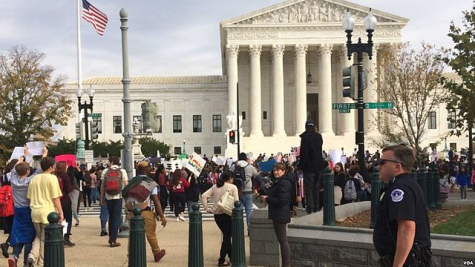Recent elections help expose extent of voter suppression
January 27, 2021
Though Democratic candidate Joseph Biden Jr. won the 2020 presidential election, the last few election cycles have revealed the nature of voter suppression in the United States. In recent years, Democrats have made significant efforts to not only better understand which groups of people have been systematically excluded from the US democracy, but to also eliminate discriminatory voting laws and educate people on efforts made to reject their votes.
These efforts have especially concentrated on understanding significant losses in the 2020 congressional and state legislature elections, and though it may take more time to study factors contributing to these losses, it has become clear that Republican lawmakers are responsible for several suppression tactics in the US.
For instance, in one of the tightest races in Georgia’s history, Republican nominee Brian Kemp narrowly defeated Democratic nominee Stacey Abrams by just 54,723 votes in the state’s gubernatorial election two years ago. There were, however, troubling signs of Republican interference in the election results. In a report by the Associated Press, Georgia’s Republican-controlled legislature has closed nearly 200 polling places in Democratic counties in recent years, made severe cuts in early voting, and purged nearly 10 percent of people from its voting lists (nearly 1.5 million in the past 6 years).
Yet these discriminatory tactics don’t just stop with the state legislature: during the actual election, an investigation revealed that Kemp, who was Georgia’s secretary of state at the time (he oversaw the election process, setting up a clear conflict of interest), had improperly removed nearly 340,000 voters from the state’s voter registration rolls. In addition, Kemp’s office blocked an additional 53,000 voters from voting because some voters misspelled their names, flagging their ballots as suspicious in Georgia’s “exact-match” system. These efforts have disproportionately affected black, Latino, and Asian-American voters, a group of voters that have, in general, tended to favor Democratic candidates.
Controversy over voter suppression isn’t limited to Georgia: in fact, in Florida, an important swing state whose results have major implications for both parties, Republican two-term former governor and current senator Rick Scott has actively enforced discriminatory voting rights laws. In Florida, a state that prevents ex-felons from voting, the state legislature will only restore an ex-felon’s voting rights after they wait 5-7 years and file an appeal.
In an interview with NPR, journalist Ari Berman, an expert on voter suppression in the US, discussed the extent of Florida’s disenfranchisement of its ex-felons in the 2018 midterm elections.
“One in 10 people in Florida — including one in five African-Americans in the state — can’t vote because they have a felony conviction. So 10 percent of people in the most important swing state in the country aren’t able to participate and aren’t able to vote in 2018,” Berman said.
In an increasingly more diverse America, a shrinking Republican Party has employed all kinds of tactics in efforts to maintain power in important states. These deliberate voter suppression tactics will weigh heavily in Democrats’ minds as the two runoff Senate elections occur in Georgia next month.
Abrams, who led a massive campaign to register 800,000 new voters, stated in an interview with CBS that she believed the election “was stolen from the voters” and that “it can’t happen again.” As Abrams aptly put it, efforts to fight voter suppression “not only changed the trajectory of Georgia, but also changed the trajectory of the nation.” Ultimately, she says, “our combined power shows that progress is not only possible, it is inevitable.”




